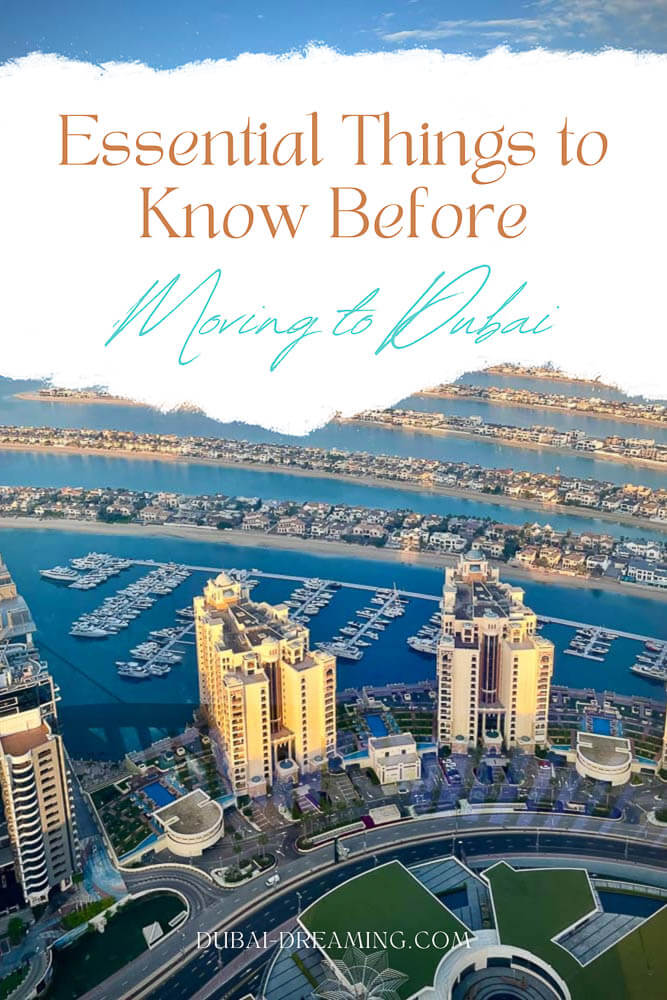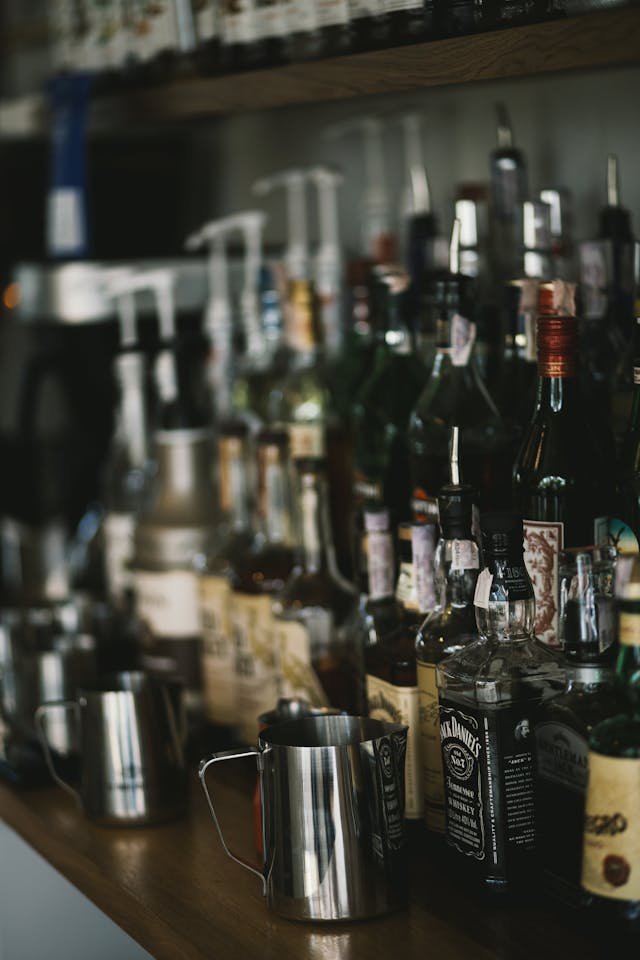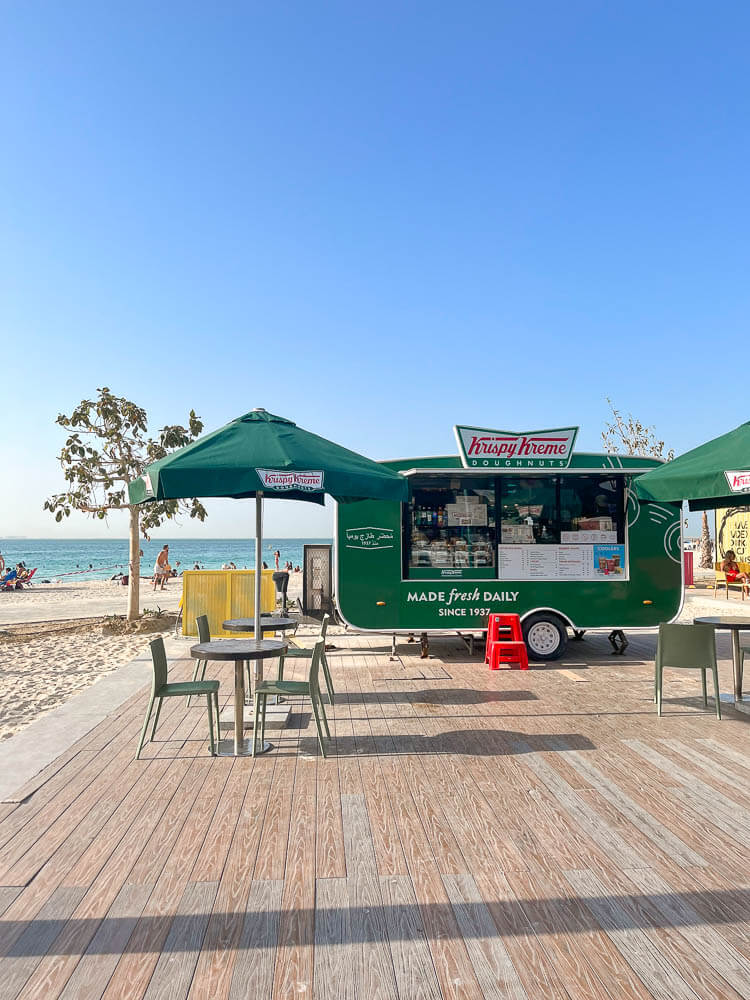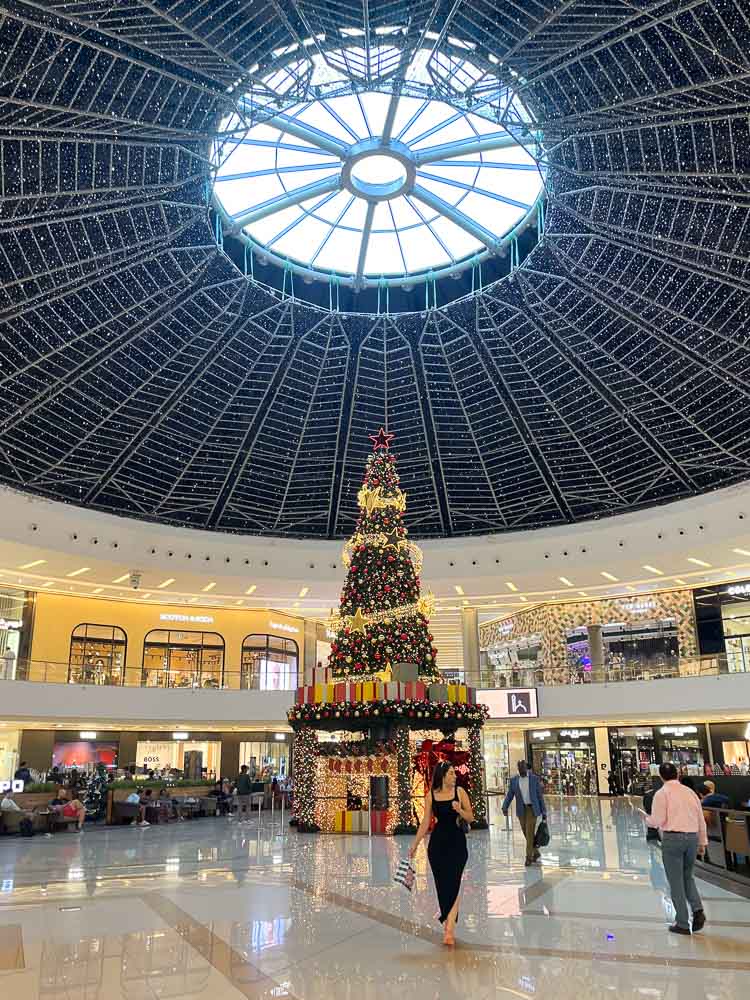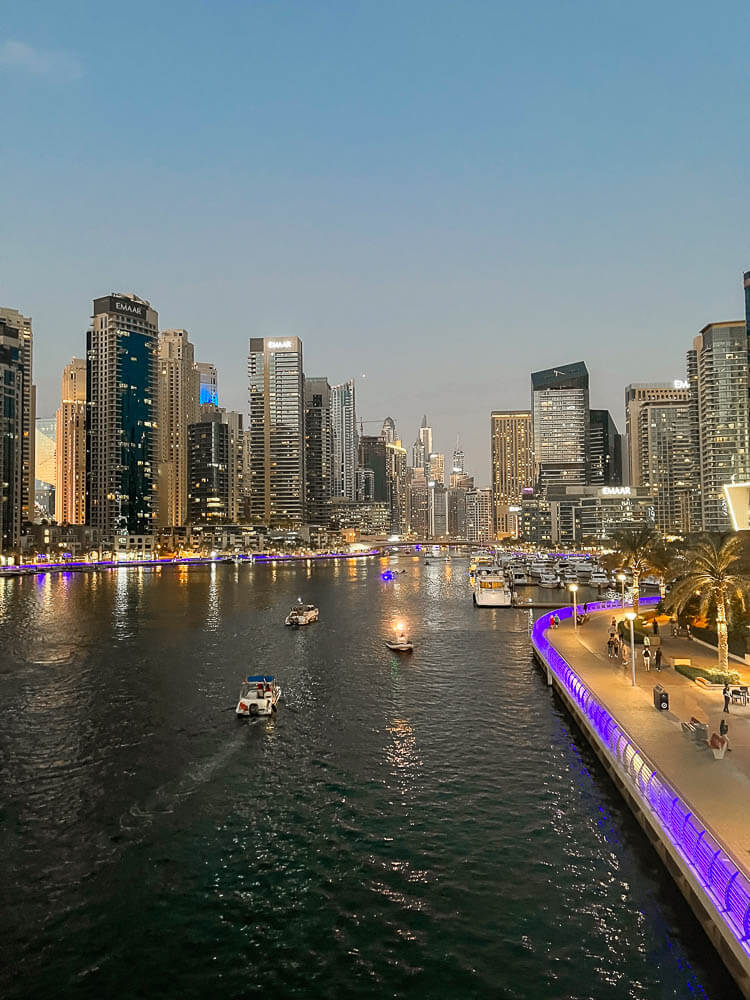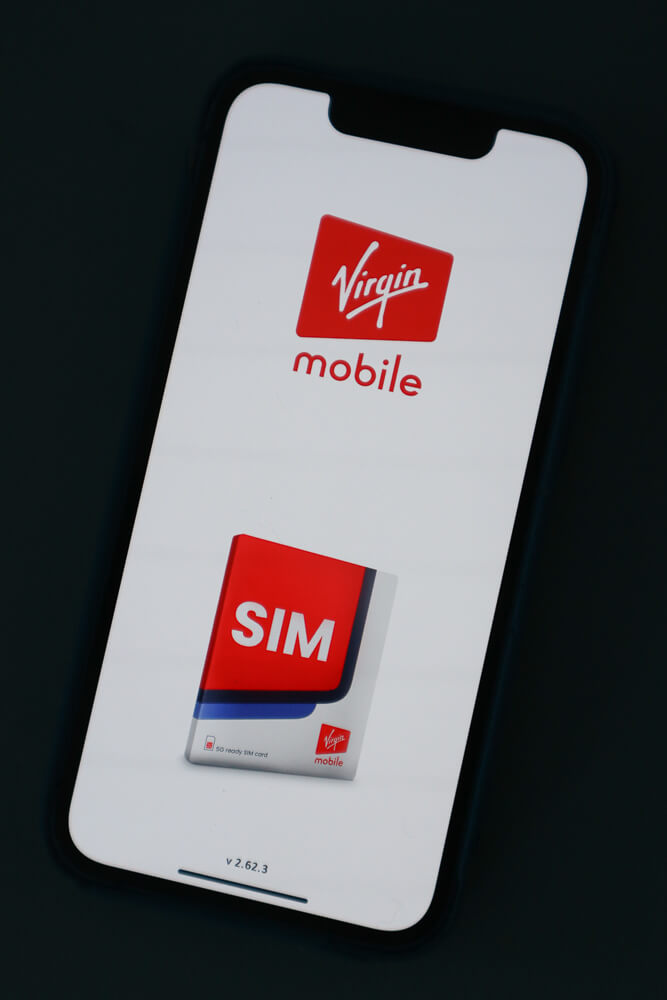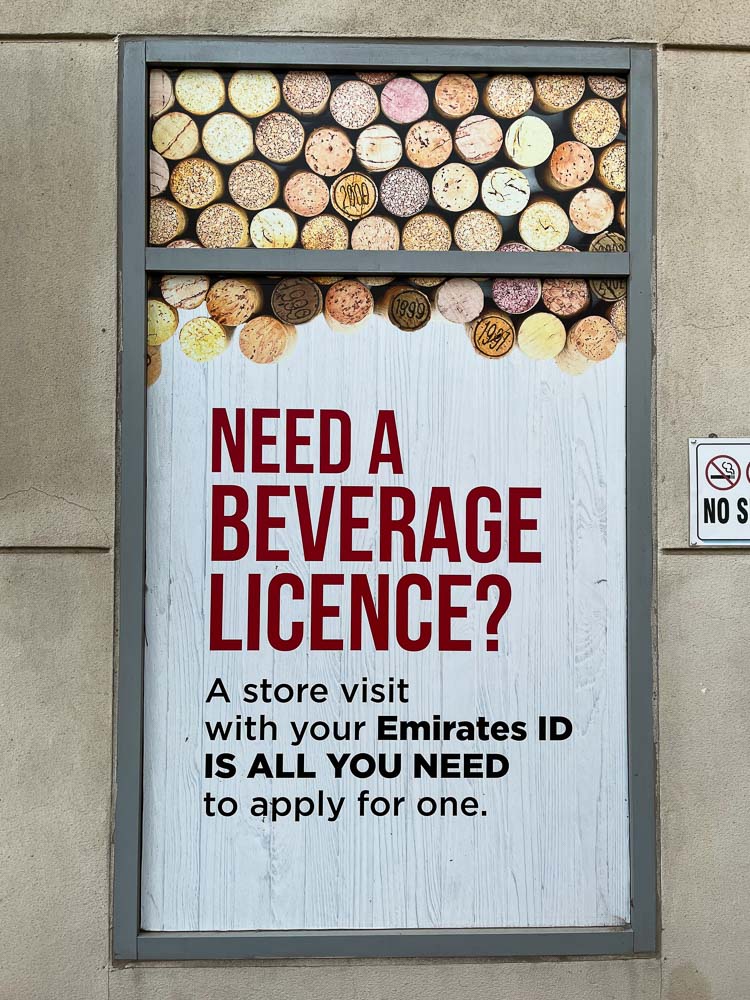Deciding whether or not to make the move to Dubai can be daunting. There are a lot of moving parts when it comes to getting here. You’ll have to navigate the costs of making the move, get your UAE residency and Emirates ID, rent or buy an apartment, and settle into a whole new way of life. It can be overwhelming, which is why I decided to compile a list of helpful things to know before moving to Dubai.
When I moved here in early 2022, I really had no idea what to expect. My husband was offered a job here and just like that, we were in Dubai. Like most Dubai expats, we went back and forth, wondering if moving to Dubai was going to be the right decision for us. Turns out – it was!
Whether you’re thinking about making the move to Dubai or you’ve got a job lined up and are currently packing your suitcases, I’ve put together my list of 13 essential things to know before moving to Dubai. Hopefully, this will shed a little light on what to expect and what it’s really like once you get on the ground here.
Disclaimer: This post may contain affiliate links. If you make a purchase or booking through one of these links I may earn a small commission (which I’m so thankful for!) at no extra cost to you.
13 Helpful Things to Know Before Moving to Dubai
1. The Costs of Moving to Dubai
In my experience, the first few months of living in Dubai were very expensive. I felt like we were just gushing money. If you’re thinking of moving to Dubai, you’ll want to have some money in the bank to cover all of the upfront costs of settling in Dubai. But don’t worry, after a few months, the bleeding will stop!
For example, if you want to lease an apartment for a year, you’ll have to pay a huge chunk of the annual rent upfront. This is typically three, six, or even 12 months of rent due when you sign your lease – depending on the landlord. So it’s not your typical month-to-month rental situation. You’ll also be putting tons of deposits down on things like internet, electricity, and water.
READ MORE: A Complete Guide to Renting an Apartment in Dubai
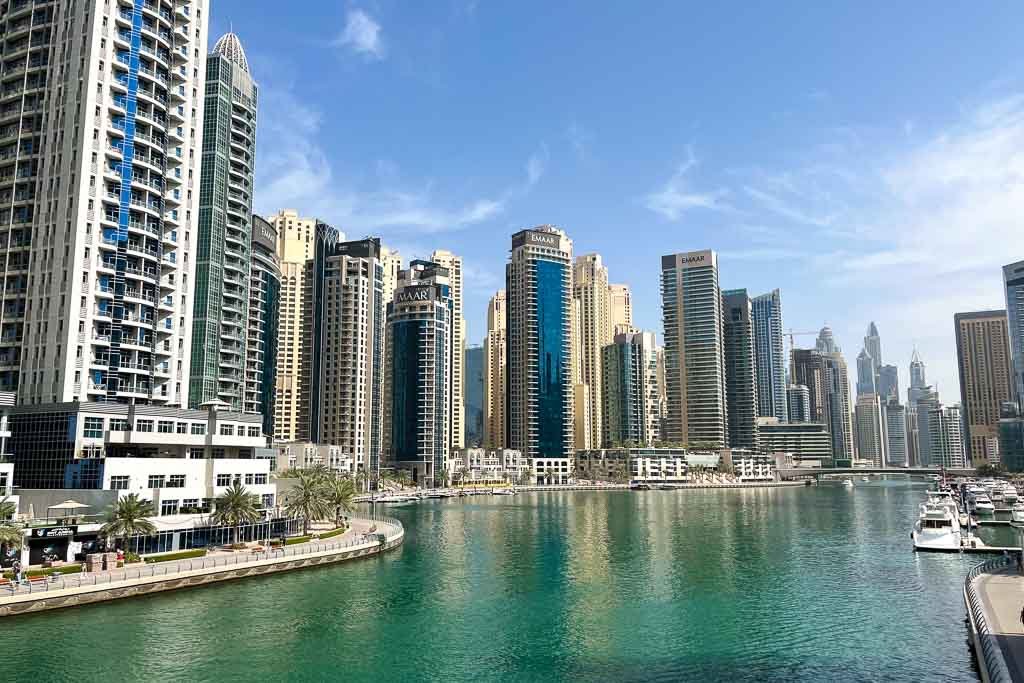
2. It’s Best to Have a Job Lined Up
I wouldn’t recommend moving to Dubai without having a job lined up first. The job market is not all that easy to crack, even if you’re on the ground.
Not only does having instant income help alleviate the initial costs of moving here, but your employer will likely help you arrange your visa, bank account, health check, health insurance, residency, Emirates ID, and just the general nitty gritty of getting settled in a new city.
3. You May Live in a Hotel for a Bit
When my husband and I first moved here, his company put us up in an apart-hotel for the first month. This is a very common practice here. In most cases, that’s more than enough time to get your paperwork and residency situated.
But because we arrived during Ramadan, our paperwork took longer than normal to get processed and we ended up living in the hotel for three months. Hopefully, things go smoother for you!
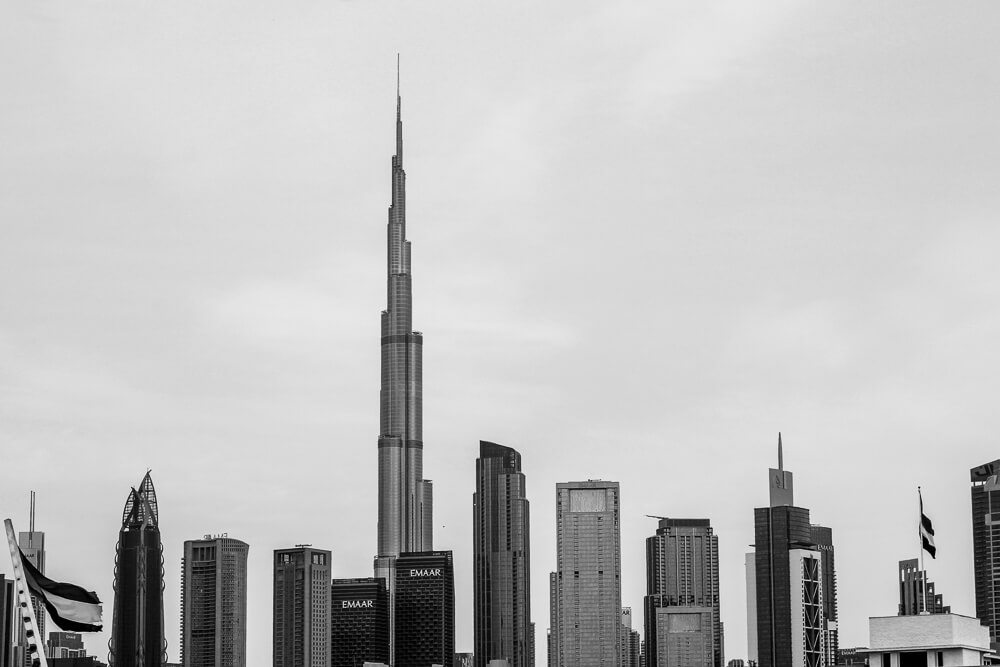
4. You Need an Emirates ID to Rent an Apartment
If you want to lease an apartment for a year, you’ll need your Emirates ID and a checkbook from your bank in Dubai to do so. That’s part of the reason we lived in a hotel for so long – we didn’t have everything in place to sign a lease.
What I didn’t know at the time is that you can easily hunt down monthly rentals on Airbnb or sites like Property Finder without having an Emirates ID. In hindsight, we should have done that. This is also a great option if you’re just starting out in Dubai and don’t have enough savings to put down money on a long-term rental.
5. You Pay Rent with Checks
When you set up your bank account in Dubai, you’ll get a checkbook and this is how you’ll pay your rent. It’s another little quirk of living in Dubai. Like I said, some landlords will want you to pay a year’s worth of rent with one check (that’s what we do, as it’s a bargaining tactic).
But others may allow you to pay with multiple checks. Either way, you can’t sign a year-long lease without that checkbook! Do note that paying rent with a bank transfer is supposedly becoming more common. Although we are still asked to pay with checks.
6. English is Widely Spoken
Yes, Arabic is the national language of the UAE but English is widely spoken. After all, roughly 85% of the population in Dubai is expats. While you can (and should!) learn some Arabic before your move, it’s not a necessity. When it comes to language barriers, I personally have never had any major issues communicating in English with anyone in Dubai.
7. Summers are Hot AND Humid
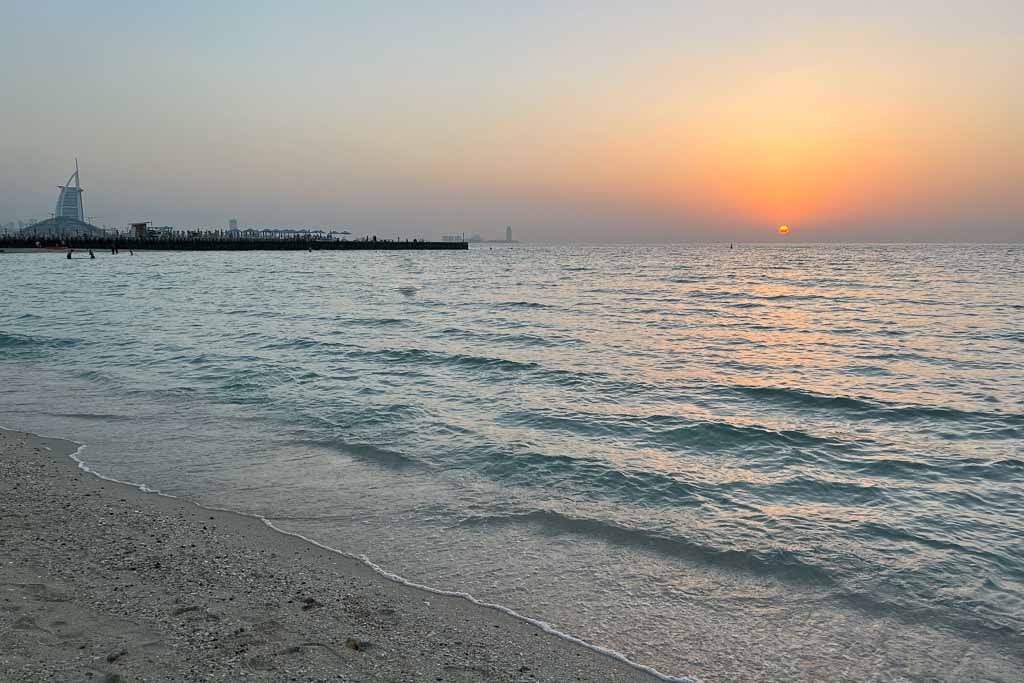
When it comes to things to know before moving to Dubai, you have to prepare yourself for the summer weather. Before I moved to Dubai, I knew the summers would get really hot but I honestly had no idea that it would be humid here too. So in summer, those 45°C/110°F days feel even hotter with the very high humidity. (Read this post if you want a better idea of what summer in Dubai is really like.)
Dubai’s summers are notorious. Outdoor attractions close for the season, outdoor dining moves indoors, and the city empties out as people flee for coolers climes. Generally speaking, things usually start heating up in May, with July and August being the hottest months in Dubai. Things start cooling back down in October, and come November, we’re all outside again!
8. There are Dedicated Alcohol Stores
Yes, you can drink alcohol in Dubai. You’ll find bars and clubs aplenty in this city! But if you want to purchase any alcohol for your home, don’t expect to find beer and wine at the grocery store. Instead, you’ll have to make your way to Dubai’s dedicated alcohol store chains: African + Eastern or MMI.
READ MORE: A Guide to Buying Alcohol in Dubai in 2024
These shops are usually hidden away around a corner or in a basement with the windows blacked out so passersby can’t see inside. But step inside, and you’ll find everything you need to imbibe.
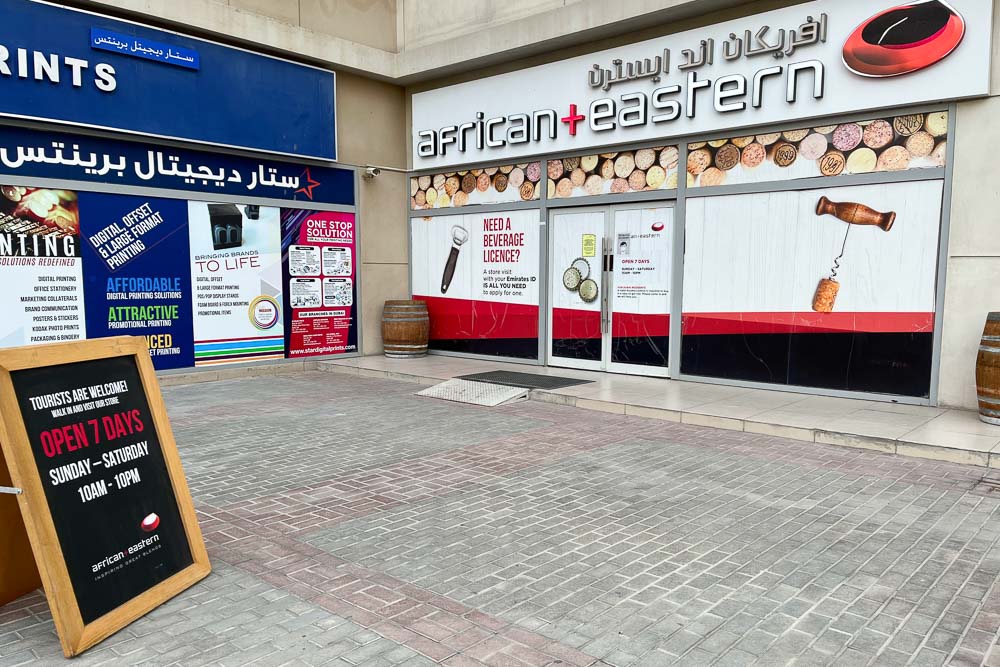
If you’re here on a tourist visa, all you have to do is show your passport to make a purchase. If you have received your Emirates ID, you’ll have to pop into one of these shops and apply for an alcohol license. It’s super easy.
You used to have to pay an annual fee for your license and they would issue you a physical license, but as of 2024, they’ve loosened things up a little bit. They’re now totally free and you just have to show your license on your phone. Dubai also removed the 30% alcohol tax in 2024, so purchasing alcohol is a lot cheaper these days.
9. Getting Around Is Easy and Affordable
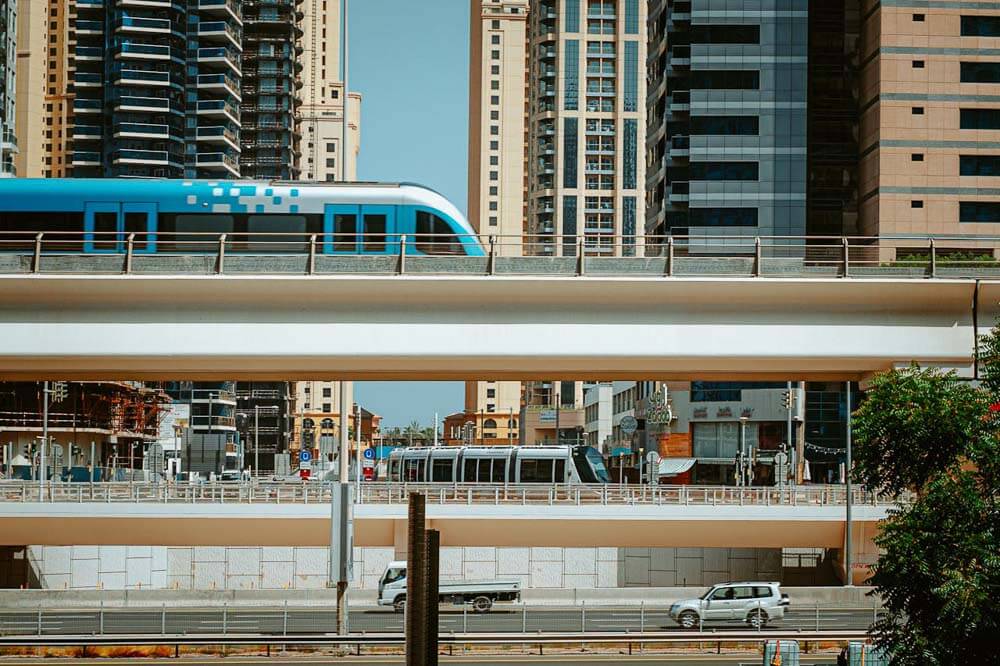
Where you live in Dubai will dictate whether or not you need a car. Because I work from home and live in the Dubai Marina, I don’t have a car. I’m able to walk to the tram station, which is what my husband takes to work, and the metro, which can take us to places like Downtown Dubai, Old Dubai, and the Dubai International Airport.
Whenever I need to go somewhere that’s not connected by the tram or metro, I just flag down a taxi on the street or book one through the Careem app. Getting around Dubai is really easy and safe. Although, traffic can be bad!
READ MORE: Getting Around Dubai Using the Metro, Tram & Taxis
10. Dubai is Very Safe
Speaking of safety, Dubai is very safe. You’ll see what I mean when you get here. Dubai just feels safer than any other country I’ve lived in before and I hear women, especially, say this all the time.
I never feel worried about being pickpocketed or walking alone at night or leaving my phone and wallet on the beach while I swim. And while things do happen in Dubai, it really does feel absurdly safe here.
READ MORE: Is Dubai Safe for Women?
11. It’s Not As Expensive As You Think
When I first moved to Dubai, my biggest concern was that we wouldn’t be able to afford living here. I really had it in my head that this was the most expensive place ever. Don’t get me wrong, it is expensive but not everything has to be.
I’d say the biggest cost is going to be rent. The rental market has been a bit high the past few years and things just keep going up. I’m living in one of the most expensive neighborhoods (the Dubai Marina), where a 1-bedroom apartment goes for around AED 75,000-90,000 (per year).
But there are tons of different areas that are far cheaper, so you don’t have to break the bank on rent. You can find a 1-bedroom for AED 50,000-70,000 (per year) in these areas.
Groceries can also be pricey but as long as you shop around, it won’t take long to find which stores offer affordable goods. For the most part, Dubai is as expensive as you make it. If you want to splash out on boozy brunches and nights on the town, you’ll want a salary that covers your expenses. But if you’re like me and prefer a more low-key lifestyle, it’s possible to save lots of money.
READ MORE: 21 Free Things to Do in Dubai That Are Actually Cool!
12. Women Don’t Need to Cover Up
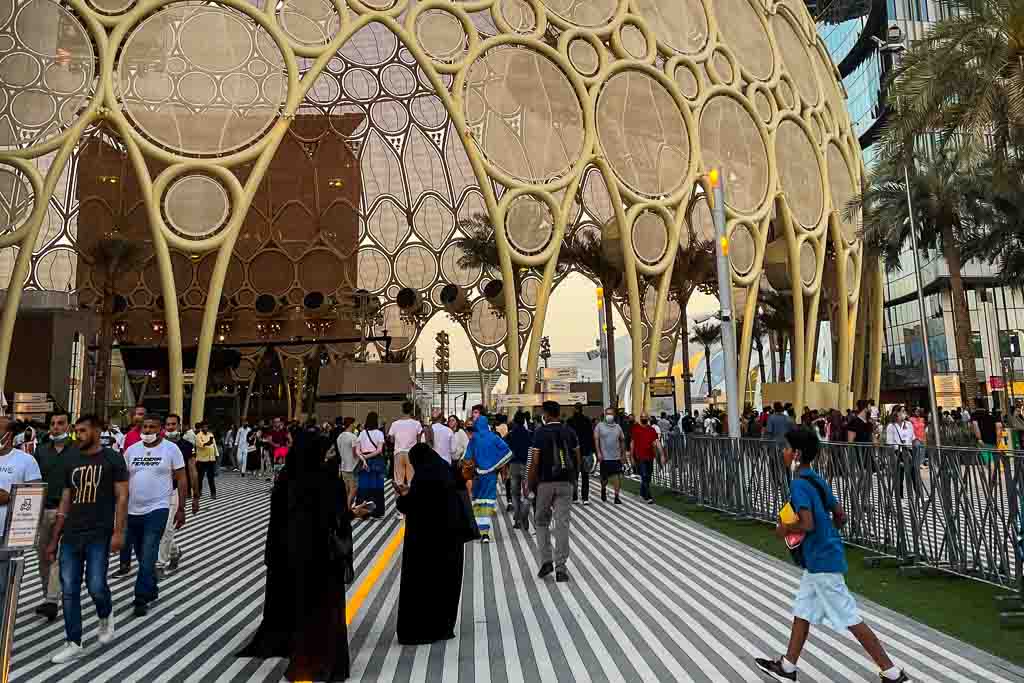
Dubai is the most multicultural place I’ve ever lived. So you’ll see people from all around the world and all walks of life living and traveling here. It really is like a melting pot!
I always get asked if I need to cover my hair living here. And the answer is no. (Well, if I’m visiting a mosque, then yes, I cover my hair!) I also live in a very touristy part of town, which means I can wear whatever I like and not feel like I’m being disrespectful.
From my experience, things are changing fast in Dubai. The Dubai I moved to a few years ago is very different than the Dubai of 20 or even 10 years ago, and I’d say, what you wear as a woman largely depends on where you are in the city.
If I’m at the beach, I wear a bathing suit, or if I’m walking around the touristy Dubai Marina, I wear shorts and a tank top. But when I go to parts of town that are a little more conservative, I do wear pants or dresses that cover my shoulders and knees.
READ MORE: What to Wear in Dubai
13. Your Phone Number is Everything
You’ll want to set up your phone plan as soon as you get to Dubai. I’ll let you in on what I did, which was easy peasy and left me without any headaches. I highly recommend going to any Virgin store in Dubai and setting up a phone plan with them. (I set mine up at the branch in the Dubai Marina Mall.)
Your phone number (along with your Emirates ID) is the key to everything in Dubai, so you’ll want to choose a phone number that you’ll remember. You’ll be asked for it constantly, and you’ll need it to verify everything with it, from setting up your utilities to making an appointment at the doctor’s.
The last thing you want to do is have to change this number. If you set up a prepaid annual plan with Virgin (which is super affordable and 50% off), you’ll be good to go, even if you’re on a tourist visa. They simply ask you to return sometime within the next 90 days with your Emirates ID so they can properly register your number. If you don’t do this, you’ll lose your number, which is a headache you really don’t want to deal with!
I hope this helps you understand a little bit more about what it’s like moving to Dubai and what to expect when you first arrive in this wild and wonderful city!
pin me for later!

